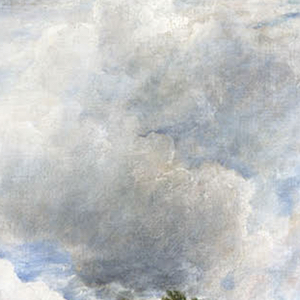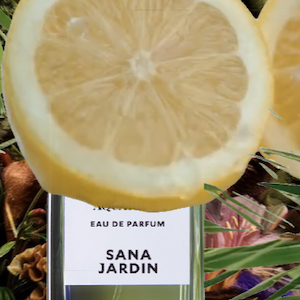Poetry Games
By Jo Phillips
If you never thought poetry was fun, interactive, and emotive think again, Nick Murray, Curator of Poetry Games at the National Poetry Library at The Southbank Centre explains all. The new modernist approach tied into technology turns the world of poetry upside down and brings fresh new approaches. It ties poetry to fun unifying the experience and opening it up to more people. find out more here from Nick in his own words in Poetry Games
Left, Geohedrons Matt Martin Image courtesy of Playing Poetry.
I keep telling everyone about the time I saw a guy walk up to a stranger and ask if he could recite some Hamlet to them. They listened for a bit, and then after a while, they wandered off, coming back on a quad bike. They beckoned him onto the back and together they rode off into the wilderness. All this happened inside a game – specifically Grand Theft Auto Online – and the man in question was a performer called Sam Crane. For months Sam attempted to perform sections of Hamlet, eventually leading up to a full performance in the digital world, but the moment I got fascinated with was this one I mentioned with the stranger and the quad bike.

If we were to visit. Image courtesy of Playing Poetry
For the majority of his attempts in this screening, Sam would approach other players in the game, and much like approaching strangers in real life, they’d say “No. no, thank you. No.” Except that in a game like GTA, a no is typically accompanied by an explosion. This made the one moment where someone joined in all the more poignant. Once on the quad bike, the player drove them both up to the top of a mountain and gestured to Sam to continue his soliloquy. They became the director and set designer for this impromptu digital performance for an audience of two.
This form of emergent gameplay is on the rise as digital spaces become more mainstream, and more deeply scrutinised. Creating new games within games, or finding joy in existing systems in ways that they weren’t originally designed for.

Pyramid Thomas Pearson. Image credit Astra Papachristodoulo.
This is the foundation for so much of the work in Poetry Games, an exhibition at the National Poetry Library (Southbank Centre, London, until 15th January 2023). The exhibition displays a range of interactive, game-based work that celebrates poetry at play.

Poetry Jenga Image Astra Papachristodoulo.
In each piece, the artist crafts the unexpected within the familiar. Such as in Astra Papachristodoulou’s Poetry Jenga in which she invites the player/reader to form their own reading of an ever-growing poem that becomes ever more tense as it goes on, or Philippe Grenon’s Émile et Moi, a poetry platformer reworking the words of classic poets into new configurations.

Emile et Moi Philippe Grenon. Image courtesy of Playing Poetry.
People have been writing playfully for years, creating rules and boundaries within which to write – What is poetry, but imposing a set of rules to make writing and reading more fun – but so many of these rules are put in place to make the writing more fun.
Think of any rule that came out of the Oulipian movement, (a movement of mainly French-speaking writers and mathematicians who seek to create works using constrained writing techniques ) like only using one vowel, or replacing every noun with another one found seven down in the dictionary. These create interesting pieces to read, but the playful nature of them ends with the writer.
The pieces in Poetry Games aim to make reading itself into a playful act. Like in Erratum a poem videogame by Jon Stone, where you have to take on the character of an interloper to a party to read the sequence of poems written within and about it. The act of becoming part of the poem adds an immediacy to the text that can’t be accessed through plain print.

erratum Jon Stone. Image courtesy of Playing Poetry
This isn’t to say that poem games have to be complex objects or digital creations. WORD/PLAY by Helen Bowie is a collection of print poems that take the form of word games like crosswords and word- searches.
Each is presented with a version to be read and ‘solved’ by the reader, and a ‘finished’ version in which the poet’s intent is written into the work. The different forms of games provide different emotional responses, from calm to frustration, which illustrates and emphasise the poetic text within.
Something that poetry and games do so well, and what connects them, is the ability to present, and invite readers into, an experience with all of its emotional weight and allow them to experience it too. Combining the two art-forms creates something altogether new.
Calum Rodger, following in the footsteps of Wordsworth and Bashō, tries to pin down this connection in his virtual travelogue Rock, Star, North. Wandering the hills and rivers of GTA 5, he searches for the digital sublime. Immersing himself in the highly crafted world of AAA games, he uses the language of nature poetry to uncover what it is that holds these worlds together.

rockstarnorth. Image courtesy of Playing Poetry.
There is something that entices players into virtual space and writers into the natural landscape, and both of these overlap significantly. In the introduction to A Slow Year game designer Ian Bogost hints that the work people do while playing video games is the same work done by readers of poetry. A cognitive unravelling of new and unexplored concepts through a traditionally understood set of rules.
Where Poetry has been doing this work for thousands of years, Game has had maybe sixty years to start that same journey. We’ve reached a point, however, where it’s become relatively easy for anyone to try their hand at game-making. The barrier to entry has been lowered in a similar way to audio production in the late noughties.

Nick Murray, Poetry Games, Photo credit Abiola Renee
Engines like Twine and Bitsy allow people to use game-making to ask difficult questions, to make gifts, to write manifestos, to write poetry. Suddenly we are all given the opportunity to ride up to the top of that mountain and make our own unexpected worlds within this one.
Poetry Games runs at the National Poetry Library in the Southbank Centre’s Royal Festival Hall until 15 January 2023. Entrance is free and unticketed. For all ages. SouthbankCentre.co.uk
If you enjoyed reading poetry games why not read Film Festival of Horrors Here
.Cent Magazine London Be inspired; Get Involved



